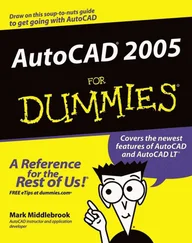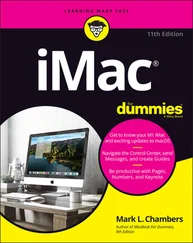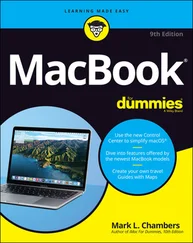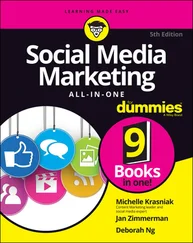In addition to the larger specialized tools and equipment that you will need to successfully craft your meats, you will also need a handful of other smaller tools.
Knives: Knives are highly personal. There is not one size that fits all when choosing knives; however, a flexible or semi-flexible boning knife and a hard chef’s knife will serve you well.
Cutting boards: You can never have enough cutting boards. You should only use plastic cutting boards, because they can be cleaned and sanitized with ease. Wood looks cool, but unless it is a properly sealed hardwood cutting board, it can lead to trouble.
Sausage pricker: These are small tools intended for pricking sausages to let air bubbles out.
Scales: Scales that measure in grams and ounces are ideal for accurately measuring salts, nitrates, spices, and so on. Larger scales for weighing larger quantities of meat are also a necessity.
Metal bowls and tubs: Large mixing bowls or plastic tubs are a must for holding both ground and unground meats.
Properly Caring for Your Gear
Once you’ve made an investment in equipment, you will want to take good care of it so that it lasts a long time, and also to keep you and the beneficiaries of your hobby safe and healthy! All of your equipment must be properly cleaned with warm, soapy water and then disinfected with some sort of sanitizer like a bleach-and-water mixture.
 You can disinfect with a solution of one tablespoon of bleach to one gallon of cold water. If the water is hot, then the chlorine will evaporate off, so be sure to use cold water. Immerse the equipment in the mixture and then let it air dry.
You can disinfect with a solution of one tablespoon of bleach to one gallon of cold water. If the water is hot, then the chlorine will evaporate off, so be sure to use cold water. Immerse the equipment in the mixture and then let it air dry.
Once you’ve cleaned and disinfected your equipment, if there are any rubber gaskets or stainless steel parts that require some sort of lubrication, be sure to apply it per the manufacturer’s specifications.
 Only store your gear after it has dried completely.
Only store your gear after it has dried completely.
Properly cleaning a meat grinder requires a little TLC. Meats and spices tend to clump inside the hopper, as well as in the threads of the locking ring. You may need a small wire brush to break these particles free. This can be particularly arduous if you have any sugar in your recipe, as it can quickly become sticky. A high-pressure spray setting on your sink faucet can also assist in pushing particles through the small holes of the grinder plate. Be sure to thoroughly inspect the grinder before sanitizing it and leaving it to dry.
Once your grinder parts are dry, you can avoid rust by applying food-safe mineral oil all over the parts that experience the greatest amount of friction. If you find a little bit of rust, don’t fret. Use lemon juice and a rag to remove the rust, then properly lubricate the parts with food-safe mineral oil.
Much like a meat grinder, a sausage stuffer isn’t the easiest thing in the world to clean. You’ll want to be sure to inspect the cylinder, piston, and horns for pesky particulate that may be hiding. They tend to stick to welded seams, and in the threads where the locking rings screw on. The inside of your stuffing horns can also be a place where meat hides out. Investing in some tube brushes like the ones pictured in Figure 1-13 will serve you well.

Photo by David Pluimer
FIGURE 1-13:Tube brushes for cleaning stuffing horns.
The piston of your stuffer will have a rubber gasket around the outside. Remove the gasket, and clean it and the piston with soapy water before sanitizing it. You also want to remove the pressure release valve on your piston and clean the valve and the hole where it is fitted. Once the stuffer is cleaned and sanitized, make sure to lubricate the piston gasket with food-safe mineral oil. This will keep the rubber from drying out prematurely.
Shopping for Gear Locally
If you live in a larger municipality where you have access to more retail options, then shopping for your gear locally may be the way to go. A good place to start is by checking in with your local family butcher to see where they prefer to shop. You may find that there are great butcher supply stores under your nose that you never knew about!
If you don’t have a specialized butcher supply store, then you’ll want to look for a restaurant supplier. Here in Indianapolis, a great option is Central Restaurant Products. This is a local company that has been in the area for decades. The biggest benefits to shopping local are that you keep your dollars in your local economy and, above all else, that you can talk to the suppliers in person. There is something special about having a go-to person to help you eliminate guesswork.
If you don’t have the luxury of shopping for equipment locally, then you can still get that in-store feel by shopping online; however, you have to know what you are looking for! A quick Google search for meat grinders or sausage stuffers will bring you a litany of options and may actually seem overwhelming. Buying new equipment with which you have very little experience can be daunting. It can be hard to know how to balance the desire for a low price with the need for high quality. The old adage, “You get what you pay for,” really applies when shopping for meat processing equipment. You can buy almost anything on Amazon.com, but the problem with large sites like Amazon is that it can be hard to sift through the junk.
Keep in mind that when shopping for your equipment, especially the higher-dollar items, you want to buy from an online retailer who will stand by their products and provide quality customer service. Following are some sites that I often frequent.
Sausagemaker.com: This is a family-run business located in Buffalo, New York. They have everything you need to get the job done and then some on top of that! The Sausage Maker provides some of the best customer service in the business. If you get a faulty product, or something doesn’t hold up as advertised, then they will solve the problem and take care of you. Figure 1-14 shows the homepage of their website.
Butcher-packer.com: Located in Madison Heights, Michigan, Butcher and Packer has all the equipment you could need. Their costs are also in line with those of their competitors, and they stand by their products. However, they don’t have quite the product options of sausagemaker.com.
Waltonsinc.com: Walton’s is another Midwestern family-owned business. They have a large selection of products, and they provide great customer service.
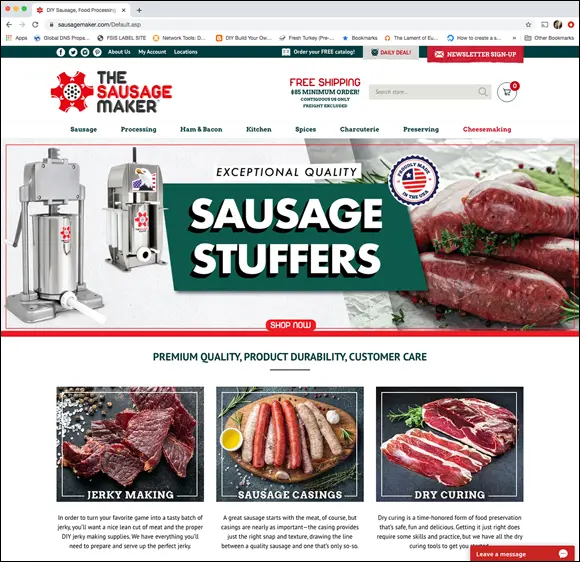
Source: Sausagemaker.com
FIGURE 1-14:Sausagemaker.com homepage.
Chapter 2
Working with Potentially Hazardous Food
IN THIS CHAPTER
 Learning basic sanitation
Learning basic sanitation
 Understanding pathogens of concern
Understanding pathogens of concern
Читать дальше
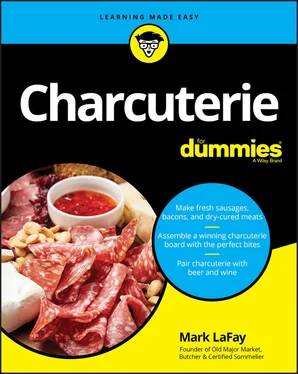
 You can disinfect with a solution of one tablespoon of bleach to one gallon of cold water. If the water is hot, then the chlorine will evaporate off, so be sure to use cold water. Immerse the equipment in the mixture and then let it air dry.
You can disinfect with a solution of one tablespoon of bleach to one gallon of cold water. If the water is hot, then the chlorine will evaporate off, so be sure to use cold water. Immerse the equipment in the mixture and then let it air dry. Only store your gear after it has dried completely.
Only store your gear after it has dried completely.

 Learning basic sanitation
Learning basic sanitation